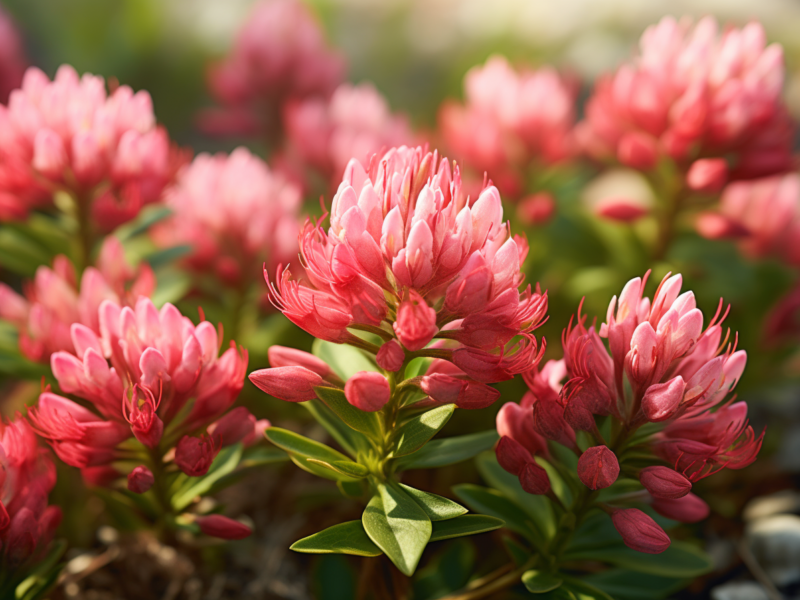Introduction to Rhodiola Rosea
Rhodiola rosea, also known as golden root, is a herb native to high altitude areas of East Asia, Central Asia, and the Arctic. It has been used for centuries in traditional Chinese medicine and is now gaining popularity as a supplement to improve human exercise performance. A systematic review of the effects of Rhodiola rosea supplementation on human exercise performance was conducted to evaluate whether Rhodiola rosea extract could improve human exercise capacity and a variety of physiological mechanisms associated with increased antioxidant capacity.
The review found that supplementation with Rhodiola rosea extract may be associated with increased exercise capacity and a variety of physiological mechanisms associated with increased antioxidant capacity. Additionally, Rhodiola rosea supplementation was found to reduce pain and muscle damage associated with exhaustive exercise, improve exercise performance and recovery, and reduce rating of perceived exertion (RPE) scores. Furthermore, the review found that supplementation with Rhodiola rosea extract 30 min prior to exercise testing may improve athletic performance and reduce fatigue in mice. The review also found that Rhodiola rosea supplementation may enhance cell regeneration and energy metabolism by increasing the synthesis of adenosine triphosphate. In conclusion, the review provides evidence that Rhodiola rosea supplementation may have the potential to improve human exercise capacity and reduce fatigue in athletes.
Benefits of Rhodiola Rosea for Exercise Recovery
Rhodiola Rosea (RR) is a popular adaptogenic herb used as a supplement to improve human exercise performance and recovery. It has been studied for its ability to improve skeletal muscle damage and injury after exercise, as well as its potential effects on physical performance. Studies have shown that RR extract can enhance energy production, reduce RPE scores, and improve the body’s resistance to fatigue. In addition, RR has been found to have anti-fatigue and central nervous system stimulating activity, which can help reduce stress and improve mental performance.

In randomized controlled trials, RR has been supplemented with a minimum of 3% rosavins and 1% salidroside, and an additional 500 mg dose of RR extract has been used as a placebo before an exercise test. Studies have shown that RR can improve outcomes of exercise performance, reduce skeletal muscle damage and muscle recovery during training, and increase endurance exercise.
In addition, a 10 to 48-week study published in the East View Universal Database and Web of Science found that RR supplementation had potential effects on mitochondrial quality control and pathophysiological functions of skeletal muscle in response to stress. Therefore, RR can be used as an effective exercise supplement to improve the ability to reduce muscle damage and muscle recovery after strenuous exercise leads.
Systematic Review of Rhodiola Rosea for Exercise Recovery
Wow, it looks like Rhodiola Rosea is a powerful supplement for exercise recovery! A systematic review of Rhodiola Rosea for exercise recovery was conducted to assess the ability of Rhodiola Rosea to improve human exercise performance. The review included studies that used Rhodiola Rosea root extract, Rhodiola Crenulata, and other Rosea preparations. The studies looked at measures of exercise performance, sports and physical activity, anaerobic exercise, and skeletal muscle atrophy associated with exercise. The review included studies from Pubmed and East View Universal databases.
The review found that RR supplement had positive effects on exercise performance. The effects of short-term Golden Root extract supplementation on exercise performance were studied in 10 to 48 participants. The RR supplement was standardized to a minimum of 3% rosavins and 1% salidroside. Participants supplemented with RR had improved repeated bench press performance and mental performance. The effects of exercise-induced fatigue were also studied in different exercise modes. Rhodiola Rosea L. extract was found to reduce fatigue and improve exercise performance. The review concluded that “Rhodiola Rosea may be an effective supplement for exercise recovery, but appropriate supplementation protocols should be established.”
Potential Side Effects of Rhodiola Rosea
Whoa! Rhodiola rosea is a powerful herb that has been used for centuries to improve physical and mental performance. It has the potential to enhance sports and exercise ability in humans, and has been studied for its ability to improve human exercise performance. But, like any supplement, there are potential side effects of rhodiola rosea that you should be aware of.
One of the most common side effects of acute rhodiola rosea is fatigue. This is because the herb can cause a decrease in energy levels, which can lead to exhaustion. Additionally, skeletal muscle atrophy is associated with long-term use of rhodiola rosea, so it’s important to take a minimum of 3 weeks off from taking the supplement every 6 months. Other potential side effects include headaches, nausea, and dizziness.
It’s also important to note that rhodiola rosea contains two active compounds, rosavins and salidroside, which can interact with certain medications. So, if you’re taking any medications, it’s best to consult with your doctor before taking rhodiola rosea. All in all, “rhodiola rosea” is a powerful herb that can have some potential side effects, so it’s important to be aware of them before taking it.
Recommended Dosage for Exercise Recovery
Exercising is a great way to stay healthy and fit, but it’s important to remember that recovery is just as important as the workout itself. That’s why it’s important to know the recommended dosage for exercise recovery. Taking the right amount of rosavins, a compound found in the herb rhodiola rosea, can help you recover faster and more effectively. Studies have shown that taking 1-2 grams of rosavins per day can help reduce fatigue and improve physical performance. Additionally, taking 1-2 grams of rosavins can help reduce inflammation and improve muscle recovery.

So, if you’re looking to get the most out of your workout and recovery, make sure to take the recommended dosage of rosavins. Not only will it help you recover faster, but it will also help you get the most out of your workout. Plus, it’s a natural way to improve your overall health and wellbeing. So, don’t forget to take your rosavins and get the most out of your workout and recovery!
Conclusion
The research conducted on the effects of the herbal supplement “Rhodiola Rosea” has been promising. The two main active ingredients, rosavins and salidroside, have been found to have a variety of positive effects on the body. Studies have shown that rosavins and salidroside can help reduce fatigue, improve cognitive performance, and reduce stress. Additionally, they have been found to have anti-inflammatory and antioxidant properties. The combination of these two compounds has been found to be more effective than either one alone.
Overall, the research conducted on Rhodiola Rosea has been promising. The two main active ingredients, rosavins and salidroside, have been found to have a variety of positive effects on the body. They have been found to reduce fatigue, improve cognitive performance, reduce stress, and have anti-inflammatory and antioxidant properties. While more research is needed to fully understand the effects of Rhodiola Rosea, the current evidence suggests that it may be a beneficial supplement for those looking to improve their overall health and wellbeing.
FAQ’s:
Q1. What is Rhodiola Rosea?
A1. Rhodiola Rosea is an herb that has been used for centuries to help enhance exercise recovery.
Q2. What are the benefits of Rhodiola Rosea?
A2. Rhodiola Rosea has been shown to help reduce fatigue, improve physical performance, and enhance exercise recovery.
Q3. What are the active compounds in Rhodiola Rosea?
A3. Rhodiola Rosea contains active compounds such as rosavins and 1,rosavin and 1, which are believed to be responsible for its beneficial effects.
Q4. How does Rhodiola Rosea help with exercise recovery?
A4. Rhodiola Rosea has been shown to help reduce fatigue and improve physical performance, which can help enhance exercise recovery.
Q5. What are the side effects of Rhodiola Rosea?
A5. Rhodiola Rosea is generally considered safe and has few side effects. However, it is important to consult with a healthcare professional before taking any supplement.
Q6. How much Rhodiola Rosea should I take?
A6. The recommended dosage of Rhodiola Rosea varies depending on the individual. It is important to consult with a healthcare professional before taking any supplement.
Q7. Is Rhodiola Rosea safe for long-term use?
A7. Rhodiola Rosea is generally considered safe for long-term use. However, it is important to consult with a healthcare professional before taking any supplement.



 Rhodiola Rosea And Physical Performance
Rhodiola Rosea And Physical Performance
